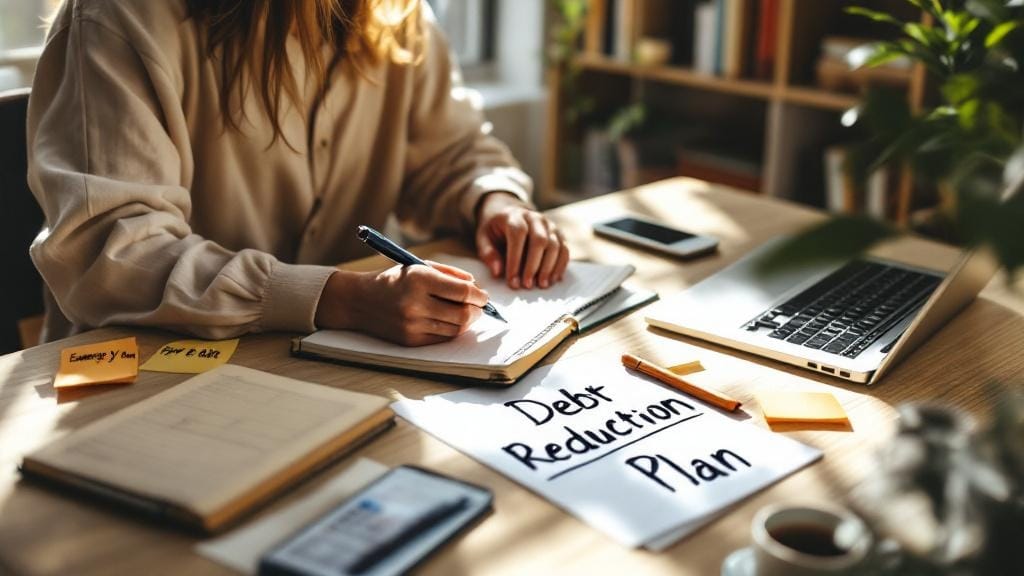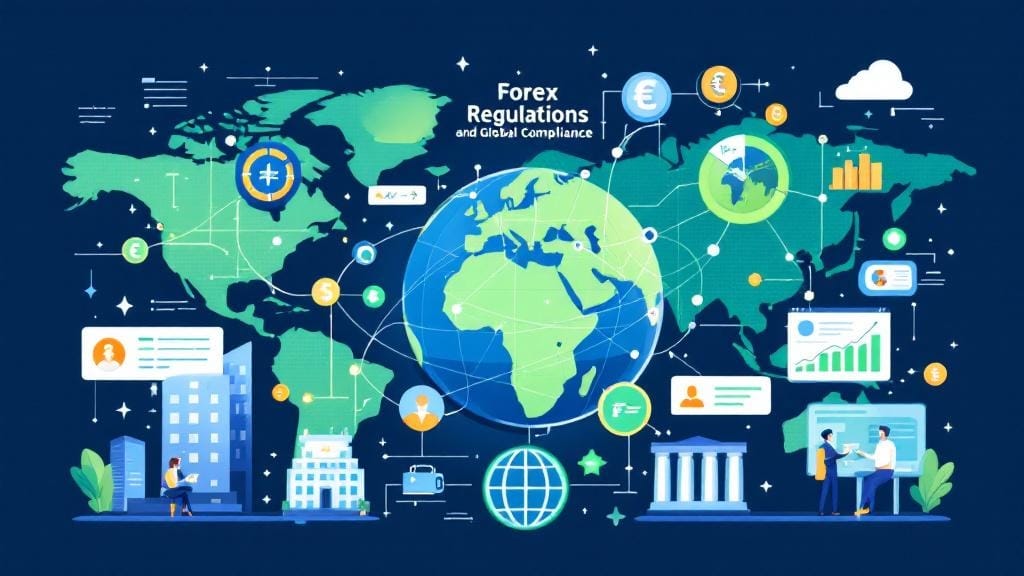If you’re feeling overwhelmed by mounting bills and wondering how to get your finances back on track, you’re not alone. Millions of people are in the same boat—trying to break free from debt and regain control over their money. The good news? With the right debt reduction tips, you can make real progress toward financial freedom—without feeling like you’re giving up everything.
In this guide, you’ll discover practical, proven strategies to reduce debt, improve your credit health, and finally feel at ease when checking your bank account. Let’s dive in!
✅ Why Is Debt Reduction So Important?
Debt can feel like a weight that holds you back from everything—buying a home, saving for the future, or even just enjoying your paycheck. Tackling debt isn’t just about numbers; it’s about regaining peace of mind and building a stable financial foundation.
Some key reasons to focus on debt reduction:
-
High interest rates (especially on credit cards) can eat up your income.
-
Minimum monthly payments barely scratch the surface of your total debt.
-
Carrying too much debt can hurt your credit utilization ratio, lowering your credit score.
-
Reducing debt gives you the freedom to save, invest, and plan ahead.
🧭 Step-by-Step Debt Reduction Tips That Actually Work
Let’s break down the best ways to get out of debt with smart, simple strategies.
1. Know What You Owe
Before you do anything else, gather a complete list of all your debts:
-
Credit cards
-
Personal loans
-
Auto loans
-
Student loans
-
Medical bills
Include balances, interest rates, due dates, and minimum payments. A budget planner or debt tracking app can help you stay organized.
Pro Tip: Focus first on high-interest debt—usually credit cards.
2. Create a Realistic Budget That Works for You
If your income disappears as soon as it hits your account, it’s time for a better plan. Budgeting isn’t about restriction—it’s about being intentional with your money.
Use a simple strategy like the 50/30/20 rule:
-
50% for needs (rent, groceries)
-
30% for wants
-
20% for debt payments and savings
Need help? Use a free budget planner to track your income vs expenses and spot areas to cut back.
3. Choose a Debt Payoff Strategy
Now that you have a plan, it’s time to take action. There are two popular debt payoff strategies:
🔥 The Debt Snowball Method
-
Pay off the smallest debt first.
-
Gain momentum and motivation with quick wins.
💣 The Debt Avalanche Method
-
Pay off the highest interest rate first.
-
Save more on interest in the long run.
Choose the one that keeps you moving forward.
4. Cut Back on Unnecessary Spending
We all have spending habits we can tweak—eating out, online shopping, or unused subscriptions.
Some smart debt reduction methods:
-
Cancel unused subscriptions (gym, streaming)
-
Cook at home instead of dining out
-
Use cashback or rewards apps for savings
-
Buy second-hand or wait for discounts
Small cuts can free up extra cash to pay down debt faster.
5. Boost Your Income, Even Just a Little
Increasing your income—even temporarily—can make a big difference. Consider:
-
Freelancing or side gigs (writing, graphic design, tutoring)
-
Selling unused items online
-
Renting out a spare room
-
Asking for a raise or promotion
Use all extra income toward your debt elimination goals.
6. Consider Debt Consolidation
If you’re juggling multiple credit card payments with high interest rates, debt consolidation can simplify your life. It combines your debts into one monthly payment—ideally with a lower interest rate.
Options include:
-
Balance transfer credit cards (with 0% APR offers)
-
Personal debt consolidation loans
-
Credit union loans with lower rates
Just be sure to avoid racking up more debt after consolidating.
7. Negotiate Lower Interest Rates or Better Terms
You’d be surprised how often creditors are willing to help. Call your lenders and ask for:
-
A lower interest rate
-
A hardship program
-
A payment extension if you’re struggling
Many companies prefer working with you rather than sending your debt to collections.
8. Don’t Ignore Your Credit Score
A better credit score can unlock lower interest rates and better options. To improve your score:
-
Pay at least the minimum monthly payment on time
-
Keep your credit utilization under 30%
-
Don’t open too many new accounts at once
Reducing credit card debt is one of the fastest ways to boost your score.
9. Build an Emergency Fund (Yes, Even While Paying Off Debt)
It might seem counterintuitive, but having a small emergency fund (₹10,000–₹25,000 or $200–$500) can keep you from going deeper into debt when surprise expenses pop up.
Start small and automate monthly contributions.
10. Get Professional Help When Needed
If your debt feels out of control, don’t hesitate to get help from a credit counseling agency or nonprofit organization. They can help you:
-
Understand your options
-
Negotiate with creditors
-
Create a debt management plan
Look for reputable organizations accredited by the National Foundation for Credit Counseling (NFCC) or a similar local body.
💬 Real-Life Example: How Raj Cut ₹3 Lakhs in Debt in One Year
Raj, a 32-year-old marketing executive from Pune, had ₹3.2 lakhs in credit card debt. He used the snowball method, cut daily chai runs, and picked up weekend freelancing. By budgeting carefully and staying disciplined, he cleared his debt in just 14 months—without sacrificing his quality of life.
📌 Bonus Financial Tips for Debt Reduction
-
Automate payments to avoid late fees
-
Use windfalls (bonuses, tax refunds) toward debt
-
Track progress monthly to stay motivated
-
Practice financial discipline by setting spending limits
-
Celebrate small milestones (debt milestones are worth recognizing!)
🙋 Frequently Asked Questions (FAQs)
1. What’s the fastest way to reduce debt?
Using the avalanche method and increasing income through side gigs is often the fastest way. Focus on high-interest debt first to save money.
2. Should I save money or pay off debt first?
Do both! Start with a small emergency fund, then prioritize paying down high-interest debt aggressively.
3. Is debt consolidation a good idea?
Yes—if you qualify for a lower interest rate and have the discipline to avoid new debt, debt consolidation can simplify payments and reduce costs.
4. How do I create a budget to reduce debt?
List all income and expenses, use a budget planner, and allocate a portion of your income toward debt repayment. Cut non-essential spending.
5. How can I reduce credit card debt without ruining my credit?
Make more than the minimum monthly payment, avoid missed payments, and keep your credit utilization low to protect your score.
6. What if I can’t make my payments?
Reach out to your lender ASAP. Ask about hardship programs, deferments, or modified payment plans. Credit counseling can also help.
7. Can I still enjoy life while paying off debt?
Absolutely. Budget for small rewards, free entertainment, and guilt-free treats to stay motivated while working toward financial freedom.
🎯 Conclusion: You Can Take Control of Your Debt Starting Today
Reducing debt takes consistency, patience, and smart planning—but it’s completely doable. Whether you’re working on budgeting to reduce debt, choosing between debt payoff strategies, or seeking personal debt reduction advice, remember: every small step counts.
Start where you are. Take one action today. And little by little, you’ll gain momentum toward a debt-free, financially stable life.








Comments (0)